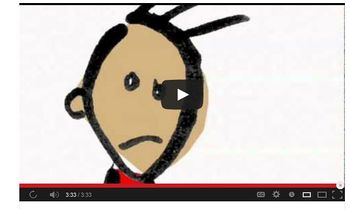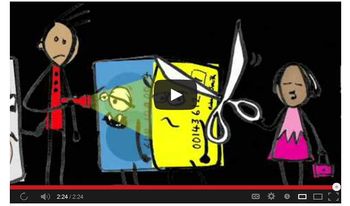Problems with Debt
Sometimes, even when we try our best, we are not able to pay all our bills. This may be due to a variety of reasons. People can fall ill, or lose a job, or have unexpected expenses, like a rent increase. This section provides information on where to get help and how to communicate with the people you owe money to.
Where do I start?[edit]
To deal with a debt problem, you first need to work out how much money you owe. To do this, make a list of all the people and companies you owe money to (your creditors).
You need to collect the following information for each debt:
- the name and address of the creditor,
- the name of the person you have been dealing with at each company,
- the account or reference number, and
- a copy of the original loan agreement you signed.
It is a good idea to keep the latest letter or statement for each debt together in one place so that you can easily find them if you need them.
What do I put in my budget?[edit]

The next step is to work out your budget. Your budget lists how much money is coming into your household and how much you need to spend.
Income: List all the income for your household. Make sure that the amounts are realistic. Include all of your current sources of income:
- wages,
- disability assistance,
- social assistance,
- a family member’s or partner’s income,
- gifts,
- child tax credits / benefits,
- pensions and old age security,
- GST refunds.
Expenses: The next thing you need to do is list all your expenses. Make sure that the amounts are realistic. Figure out all of your expenses on a weekly, monthly, or seasonal basis. Make sure you remember to include personal expenses, such as loans, restaurant meals or gym memberships, and household expenses, such as rent, groceries, cable, and utilities. When you make a list of your expenses, think about whether you may be able to make any cutbacks. If you can make cutbacks, this will make more money available for you to pay back your debts.
When you have listed all your income and expenses, add up the figures and see if you have any money to spare to pay your creditors. If you have any money to spare, decide which debts are the most urgent ones, and which debts are less urgent. Pay off the most urgent debts right away. Then make a plan for how you are going to pay the less urgent debts.

What can a credit counsellor do to help me?[edit]
You may wish to contact a credit counsellor for help in developing your plan to pay off the debts. You may also wish to write a letter to your creditors that explains what you have decided.
You can contact a credit counsellor they will look at your finances with you, and suggest options. They may be able to help you get into a debt repayment program to help you pay off your debt.
How do I contact my creditors and what do I say?[edit]
Step 1: Write a short letter to each of your creditors[edit]
You need to provide enough information so that your creditors understand your financial difficulty. Tell your creditors that you would like to pay your debt but cannot do so in full right now. You could offer to pay them an amount you can afford if you have the money to do so. If you have to stop making payments, let your creditors know about your financial situation and that you will tell them when it changes.
Step 2: Attach any relevant documents[edit]
If you have problems that are preventing you from paying your debt, such as health issues or job loss, you should provide proof, such as:
- A letter from your doctor if you have health problems that affect your income.
- Documents that show changes in your job. For example, you may have had your work hours cut, or you may have lost your job, or your Employment Insurance benefits have ended.
- Documents that show changes in your family. For example, you may have a new child or you may be taking care of an elderly parent.

Step 3: Attach your budget[edit]
Your budget shows the people you owe money to (creditors) what you can afford to pay towards your debts. If a creditor thinks the amount you spend on something is unreasonable, they may ask you to explain why you spend this amount.
Send your letter, any documents, and budget to your creditors by registered mail or fax or email. You want proof that they received it.
Step 4: Keep notes[edit]
If you speak with any of your creditors about your situation, write down their name, number, the time of call, and what you discussed. If the person you were talking to suggests a payment plan, ask her or him to send it to you in writing.
Debt collectors[edit]
Sometimes the person you owe money to has turned the debt over to a debt collection agency. There are laws that protect debtors from what a debt collector can do. For example, there are strict limits on contacting your family or your employer, and you have a right to tell a collector to stop phoning you altogether.
For more information about debt collectors, contact Consumer Protection BC at www.consumerprotectionbc.ca. Find more helpful information and links in the Sources of Help for Consumers section.


| This information applies to British Columbia, Canada. Last reviewed for legal accuracy by People's Law School, 2013. |
| |||||||||||||||||||||||

